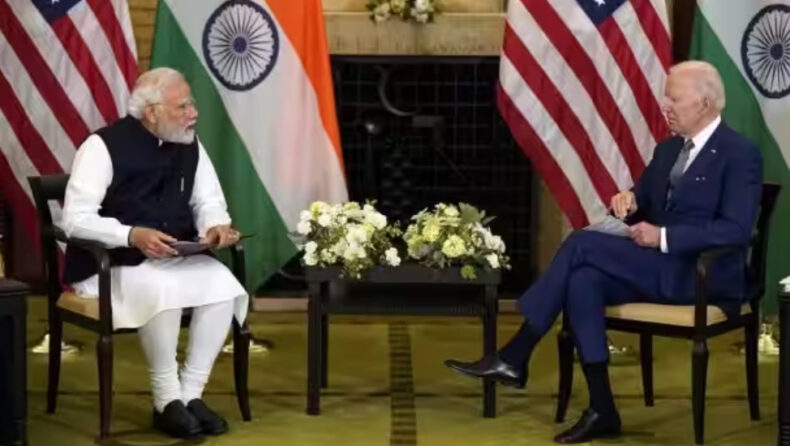India’s global role in diplomacy: From hosting the G20 Summit to considering Republic Day invitations for Quad leaders, and its evolving foreign policy in the Indo-Pacific.
India is gearing up to host the G20 Summit from September 8 to 10, and it’s evident that the country is working hard to increase its diplomatic influence, especially in Southeast Asia. This isn’t just about ambition; it’s also a strategic move to balance China’s growing influence in the region.
In recent months, India has been actively involved in diplomacy, with Prime Minister Narendra Modi leading the way. His upcoming meeting with U.S. President Joe Biden during the G20 Summit has generated significant interest, underlining India’s efforts to strengthen its relationships with key nations.
Backing from the United States
The United States, represented by National Security Adviser Jake Sullivan, has expressed support for India’s active role in the G20 and its commitment to addressing global issues. This shows that India’s international significance is on the rise.
Inviting Quad Leaders to Republic Day
Furthermore, India’s interactions with Quad leaders – including the United States, Japan, and Australia – have been making waves. There’s talk of India possibly inviting these leaders as special guests for its Republic Day celebrations in 2024. This potential move reflects India’s desire to promote cooperation in the region and tackle shared challenges, especially in the Indo-Pacific.
Importance of the Quad Diplomacy
Apart from its diplomatic efforts, India’s potential invitation to Quad leaders for Republic Day in 2024 holds substantial importance. It demonstrates India’s commitment to fostering collaboration among like-minded nations, particularly in the Indo-Pacific. The Quadrilateral Security Dialogue, or Quad, which includes the United States, Japan, Australia, and India, has gained prominence as a platform for discussions and cooperation on vital regional and global issues.

India’s intention to invite Quad leaders as special guests highlights its strategic goal to play a crucial role in shaping regional dynamics and addressing common challenges. It’s a sign of India recognizing the Quad as an essential platform for enhancing security and stability in the Indo-Pacific, especially amid growing concerns about regional security and China’s assertiveness.
India’s Role in Ensuring Regional Stability
India’s potential Republic Day invitation to Quad leaders signifies its determination to strengthen alliances and consolidate its position as a key player in the Indo-Pacific region. As India engages actively with countries that wish to remain neutral in the U.S.-China rivalry, it emphasizes its commitment to regional stability and security. This diplomatic approach aligns with India’s broader efforts to promote a more balanced world order, moving away from the dominance of any single power. While China’s influence remains significant, India’s proactive diplomacy and independent foreign policy position it as a significant player in Southeast Asia and beyond.
Evolving Foreign Policy: From ‘Look East’ to ‘Act East’
While India’s efforts to expand its diplomatic influence are clear, it’s essential to consider the broader context of its evolving foreign policy. India’s ‘Look East’ policy, which began in 1991, has gradually transformed into ‘Act East,’ reflecting changing regional dynamics, including China’s assertive stance.
Border Tensions and Shifting Strategy
The 2020 border clash between Indian and Chinese forces marked a turning point. This event prompted India to rethink its approach to Southeast Asia. In the past, Indian leaders had been cautious about stepping into areas where China might feel uncomfortable due to longstanding border tensions.
Diplomatic Ties with Neighboring Nations
This shift underlines India’s proactive efforts to strengthen relationships with its neighboring countries. However, given China’s reluctance to resolve border issues and its unyielding stance, India has adjusted its strategy. This recalibration is evident through India’s increased engagement with regional nations. For instance, India’s decision to provide a naval warship to Vietnam and enhance defense ties with countries like Vietnam exemplify this strategy. India is positioning itself as a reliable partner in addressing regional security challenges while also solidifying its role as a trusted ally in shaping the ever-changing geopolitical landscape.
Building Strong Alliances: Quad Leaders at Republic Day
The prospect of inviting Quad leaders to India’s Republic Day celebrations in 2024 reflects India’s intention to strengthen its alliances and establish itself as a key player in the Indo-Pacific. While India has traditionally maintained an independent foreign policy stance, it’s actively engaging with countries that prefer to remain neutral in the U.S.-China rivalry.
These developments align with India’s efforts to promote a more balanced world order, moving away from the dominance of any single power. The ASEAN region, in particular, has acknowledged India’s growing stature and its potential to contribute to regional stability.
In a recent survey, India emerged as the third most preferred option for Southeast Asian nations seeking to navigate the uncertainties arising from the U.S.-China rivalry. This highlights India’s appeal as a partner in fostering a more balanced regional order.
India’s expanding diplomatic influence, from hosting the G20 Summit and engaging in bilateral talks with global leaders to the potential invitation of Quad leaders to its Republic Day celebrations, underscores its evolving role in shaping the international landscape. While China’s influence remains significant, India’s proactive diplomacy and independent foreign policy position it as a significant player in Southeast Asia and beyond. As India continues to assert itself, the world watches closely, recognizing the nation’s growing influence on the global stage.












